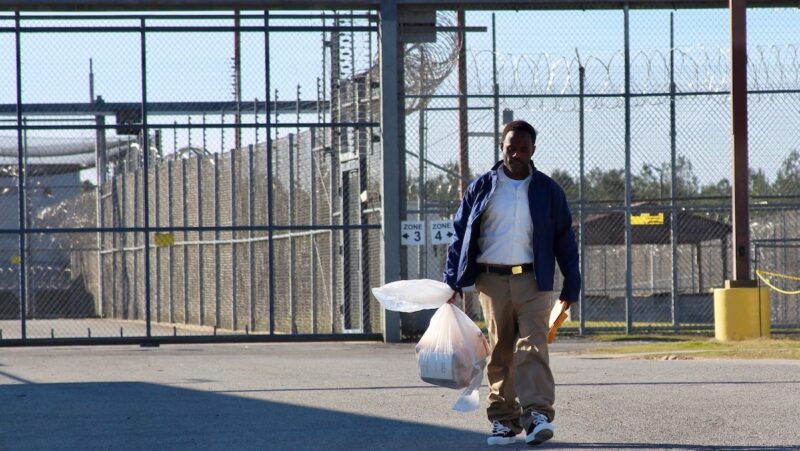Transitioning back to civilian life after spending time in a federal prison camp can be a daunting endeavor. The journey toward reclaiming a sense of normalcy often feels overwhelming, wrapped in layers of uncertainty and heightened emotions.
Amidst this tumult, finding the right hobbies can serve as a vital lifeline, offering not only an outlet for self-expression but also a sanctuary for stress relief. From the meditative strokes of a paintbrush to the invigorating rhythm of a marathon, hobbies can be as diverse as the individuals pursuing them.
Each activity presents a unique opportunity to rediscover joy, cultivate new skills, and forge connections with others, all while gently easing the burdens that linger from confinement. In this exploration of the best hobbies for stress relief, we’ll dive into a variety of options that cater to different interests and temperaments, illuminating paths toward healing and fulfillment.
Finding Freedom: Top Hobbies to Ease the Transition from Federal Prison Camp

Finding freedom after the confines of a federal prison camp can feel like stepping into a whole new world—a world bursting with possibilities yet tinged with the remnants of past experiences. Engaging in hobbies can be a transformative way to navigate this transition, providing not just a distraction but a genuine outlet for expression and growth.
Think about the gentle rhythm of painting, where each stroke can liberate pent-up emotions, or the exhilaration of hiking, a chance to reconnect with nature while embracing newfound independence. Gardening can also ground you, as you nurture life and witness growth—a symbolic representation of your own journey.
Perhaps you find solace in writing, crafting stories that echo your struggles and triumphs, or even in learning a musical instrument, where each note resonates with your heart as you reclaim your narrative. Each hobby becomes not just a pastime but a pathway to rediscovery, healing, and ultimately, freedom.
Healing Through Hobbies: Building a Stress-Free Lifestyle Post-Incarceration

Emerging from the confines of federal prison camp can be a tumultuous transition, yet it often brings the priceless opportunity to rediscover oneself. Engaging in hobbies is more than mere pastime; it becomes a powerful tool for healing and personal growth.
From the intimate strokes of a paintbrush to the rhythmic lilt of a guitar, these activities can serve as a vibrant canvas for expression and emotional release. Gardening, for instance, offers not only the therapeutic engagement with nature but also the rewarding experience of nurturing life; while volunteering can forge connections, instilling a sense of purpose and community.
Each hobby provides a unique avenue for reflecting on one’s journey, helping to alleviate stress and foster resilience in what can be an overwhelming world. This phase of rediscovery encourages individuals to cultivate their passions and, in doing so, to craft a fulfilling, stress-free lifestyle that embraces healing and hope.
Rediscovering Joy: Enjoyable Hobbies to Combat Post-Prison Stress

Rediscovering joy after the challenges of life in a federal prison camp can be a profound journey, marked by the exploration of enjoyable hobbies that not only captivate the mind but also heal the spirit. Consider diving into the world of gardening, where nurturing vibrant plants can bring a sense of accomplishment and connection to nature.
Alternatively, embrace the creativity of painting or writing, avenues that allow for self-expression and emotional release. Engaging in physical activities, such as hiking or yoga, offers both a rush of endorphins and a chance to reconnect with one’s body, fostering a sense of well-being.
Whether its rediscovering an old passion or trying something entirely new, these hobbies serve as gateways to joy, gently easing the stress accumulated during confinement and paving the way for a richer, more fulfilling life.
Conclusion
In conclusion, engaging in hobbies after the challenges of a federal prison camp can significantly enhance mental well-being and promote a healthier, more fulfilling life. Activities such as gardening, painting, or joining a community sports league not only provide an outlet for creativity and physical activity but also facilitate social connections that can be crucial during the reintegration process.
For a black man looking to reclaim his identity and purpose post-incarceration, finding a passion in these hobbies can serve as a powerful tool for stress relief and personal growth. Embracing these activities can pave the way for healing, self-discovery, and a brighter future, proving that it’s never too late to cultivate joy and meaning in one’s life.



